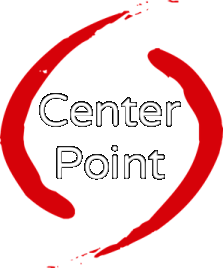The Skill of Self Reflection
The Doorway to Transformation
The Art and Skill of Self-Reflection
Self-Reflection is the technique where It all happens. Self-Reflection is shifting your focus from the external situation triggering your upset emotions and instead focusing on your upset emotions and fear-based thinking with a self-analytical perspective. Self-reflection is questioning the fear-based thinking that is driving your negative emotions and your dysfunctional reactions to challenging situations. When you realize there is no spoon and that the illusions of your fears are not true, then you have the mental shift that brings emotional freedom.
When someone criticizes you, when situations don’t work out the way you wanted, or when anything happens that you get upset about, look at your emotions and try to recognize the core fears that are getting activated in the situation. Question the core fears that are getting triggered and question the fear-based paradigm you have created that is creating the context for your upset emotions. This could include questions like: “Is it true that I am not good enough,” “Is it true that this situation is my entire fault?” “Is it true that other people don’t care about me?” “Is it true that I’m alone?” Learn to understand and recognize the nature of your core fears that are getting triggered in any given situation. This is called “catching yourself with your hand in the cookie jar”. In other words, when you learn to catch yourself in the act of perpetuating and triggering your core fears in the moment of their occurrence, then you begin to free your mind from the effects of your own fear-based thinking and your emotions start to become less triggered and less reactive to life’s challenges.
When you consistently practice the skill of self reflection, your self esteem begins to disconnect from the tyranny of your core fears and it becomes easier for you to forgive yourself and others for dysfunctional behavior and become more focused on solutions rather than on problems. Don’t believe everything you think. Self-reflection is realizing that just because you think something doesn’t necessarily make it true.
The Three Step Process
Self Reflect – Raise Self awareness in the moment of conflict
Observe your fear-based self talk. Look for the themes of your core fears that get triggered by your life situations and conflicts. Understand and get in touch with the paradigm of your fear-based thought system.
Don’t try to fix or change your fears, simply become the observer of your own thoughts.
Observe your coping strategies and behaviors that kick in when your fears get worse. Remember, don’t try to fix or change your fears or coping strategies. Simply become the observer of your own awareness.
Disengage From Your Fears. Unplug from the paradigm of your core fears.
Ask yourself the question, “Is it true?” i.e. – Is it true that I’m not good enough? Is it true that this situation is all my fault? Is it true that I’m alone?
Be willing to see through the illusion of your core fears that keep you locked in old behaviors, old dysfunctional ways of perceiving or old parenting habits.
Choose How to Respond Rather than Reacting Choose a more effective response to your current situation rather than mindlessly reacting to your triggers and fears.
Once you unplug from your fears and triggers, then you become free to choose your responses based on what is most helpful or effective, rather than getting stuck in your past habitual behaviors and conditioned responses.
You can become more proactive rather than reactive and use better judgment in responding to difficult situations.







